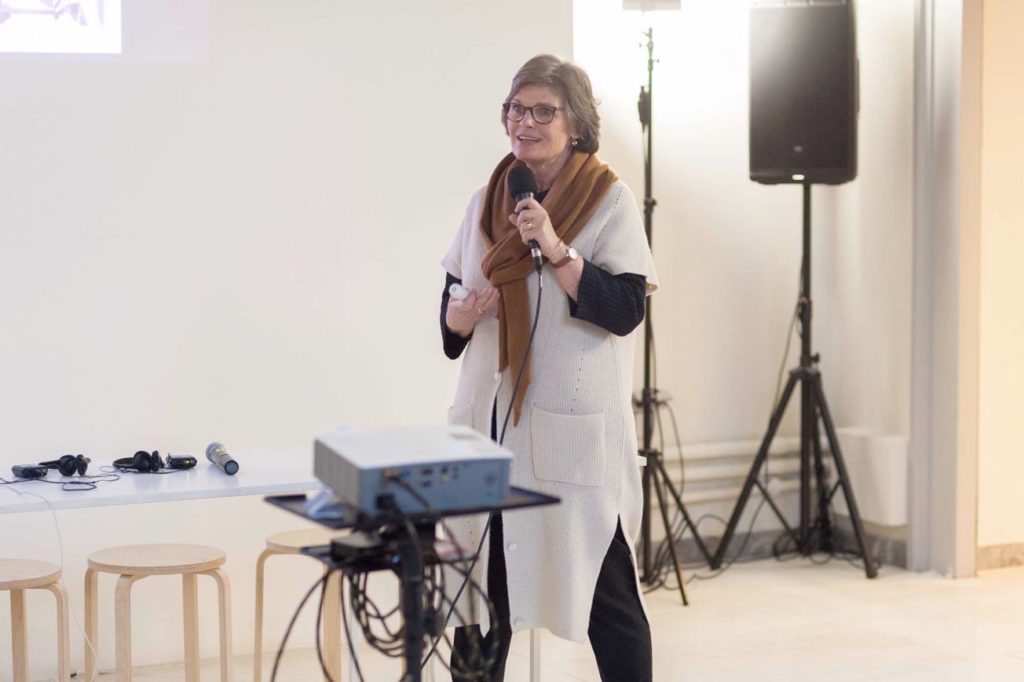Art World
Where Did documenta’s Money Go? Air Conditioning, Hotel Tabs, and Other Unforeseen Expenses, Says CEO
In her first interview since the budget scandal broke, documenta CEO Annette Kulenkampff offers her side of the story.

In her first interview since the budget scandal broke, documenta CEO Annette Kulenkampff offers her side of the story.

Henri Neuendorf

In the days since documenta’s state stakeholders issued an emergency €8 million loan guarantee to save the quinquennial from bankruptcy, one question has hovered above the chatter: Where did all the money go?
While the rumor mill went into overdrive, organizers and executives of the show remained silent at the behest of documenta’s advisory board—until now. Speaking to the German daily Frankfurter Allgemeine Zeitung in an interview published today, documenta’s embattled CEO Annette Kulenkampff told her side of the story.
She cited security, transportation, travel, energy, air conditioning, and Greek tax hikes as the primary culprits of the €5.4 million deficit. “We overran the budget due to unforeseen circumstances we couldn’t influence,” she told the newspaper. Modest, mundane price increases both in Athens and Kassel added up to land the exhibition millions of euros in debt, she said.
Following an uptick in terrorist attacks across Europe, this year’s documenta required a comprehensive security plan for the first time, Kulenkampff noted. The additional security requirements set by Kassel’s police cost around €400,000. Furthermore, security in Athens had to be bolstered after some sites were deemed potential terror targets.
Transportation costs also went around €500,000 over budget due to extra packaging and security requirements, while time pressure meant that it wasn’t always possible to save money by consolidating the shipping of artworks to Athens.
Meanwhile, travel and lodging for the 200 participants of documenta’s nine-month-long public program also resulted in ballooning costs. According to Kulenkampff, hotels in Kassel were also charging higher rates than in previous years.
In Athens, energy and air conditioning for the exhibition’s multiple venues went over budget as well. (The country suffered a major heatwave in July that led to the temporary closure of the Acropolis and other archaeological sites.) At the same time, the Greek government raised the VAT on June 1 from 23 percent to 24 percent, increasing the cost of basic goods and services.
Kulenkampff denied the rumors that she failed to control artistic director Adam Szymczyk’s spending. “Of course I was sometimes under pressure [from Szymczyk] when it was said that if we don’t realize this, the whole thing won’t work. documenta is enormous and there are many competing interests—it’s not just one or two artists, but over 160 and over 10 curators,” she said.
Despite the €5.4 million deficit, Kulenkampff maintained that documenta’s broader impact on the economy is a positive one. The exhibition “creates enormous economic and cultural value,” she said. Visitors to the exhibition spend more than €200 million in Kassel and the surrounding region during the show’s run, she noted.
In light of this broader impact, Kulenkampff called on the government to rethink documenta’s funding structure, which she described as a “high-risk gamble on the future and not a viable model.” Currently, half of the quinquennial’s budget is provided by the state of Hesse and the city of Kassel, while the other half is raised by documenta through ticketing, merchandising, and sponsorship. She suggested the federal German government as an alternative funding source, but did not go into detail on alternatives to the current model.
Kulenkampff also noted that the quinquennial is working within an antiquated organizational structure. The number of employees hasn’t changed in 30 years, she pointed out, while the scope and demands of the show have expanded in tandem with the internationalization and professionalization of art world.